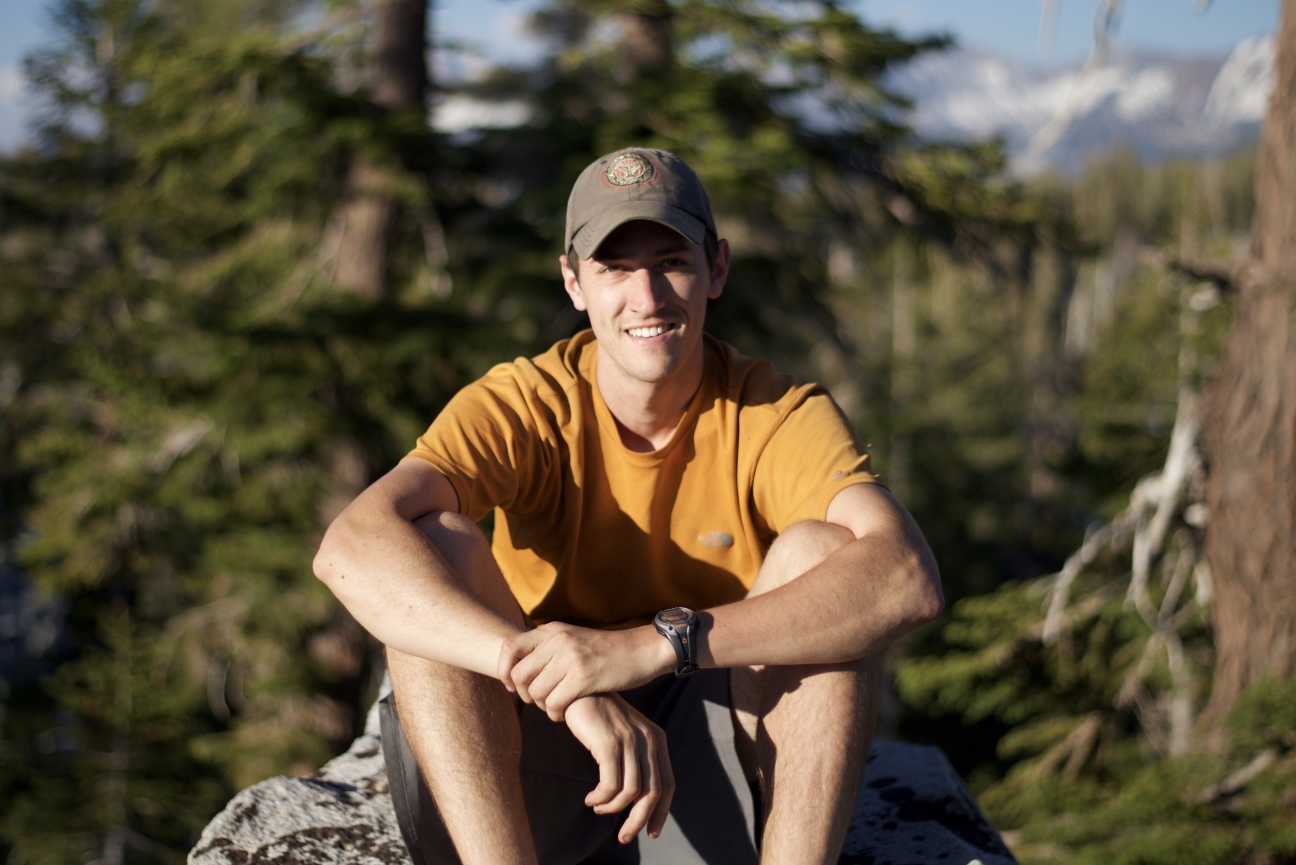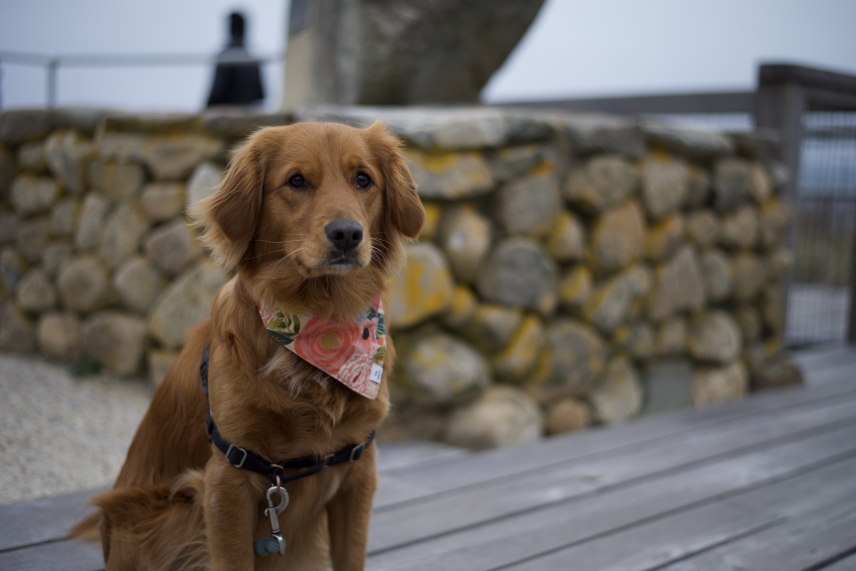
Gavin Schlissel
Courtesy of Gavin Schlissel
Meet a Whitehead Postdoc: Gavin Schlissel
Gavin Schlissel is a postdoc in Whitehead Institute Member Pulin Li’s lab studying cell signaling and how proteins move between cells. We sat down with Gavin to learn more about him and his experiences in and out of the lab.
What is your current research focus?
In my current work with Pulin, we recreate developmental events in cell culture to observe the behavior of developmentally important genes, proteins and circuits. The question I’m working on is how signaling proteins, which transmit information between cells, travel from their source to their destination. We’ve made some progress in understanding how the signaling protein Hedgehog can travel through tissues, and I’m currently trying to build on that work to understand general mechanisms of protein movement between cells.
To study signaling in cell culture, we make mutant cell lines that can either transmit or receive a signal, then we watch the process occur on a microscope. We rely on a lot of fluorescently tagged cells or proteins to let us study the process at multiple different timescales—some experiments might last 3 days, or others might last just a few seconds. Our goal with every experiment is to connect the physical or biochemical features of signaling proteins to larger-scale biological processes, to understand how animal forms develop.
What did you want to be as a little kid?
My dad’s cousin was an engineer, and I asked him what that meant. He told me that an engineer deals with problems that are so hard that nobody knows how to solve them. He said that being an engineer means that when you encounter a hard problem, you go away and think about it for a long time then come back and solve it when you’re ready. I thought that sounded nice, and that’s what I wanted to do.
When and how did you become interested in a career in science?
My initial attraction to science had a lot to do with the culture of research, which I find to be extremely welcoming of new ideas and generally meritocratic. I felt those aspects of science culture very quickly when I started doing undergraduate research, and they were a large part of why I decided to go to graduate school. I think biology is in a great place among the sciences, because there is such a bounty of interesting, unanswered questions. My favorite feeling is when I am surprised by someone else’s creative idea, and I’ve always sought out environments that maximize that opportunity. In biology it seems to happen daily. Before Whitehead Institute I studied chromatin replication, and was consistently impressed by how old questions can yield surprising insights as we develop new or bespoke tools to revisit a question’s core assumptions.
What made you decide to join Pulin’s lab at Whitehead Institute?
Before Pulin started her lab, she developed an extremely powerful experimental method that could recreate many features of Hedgehog signaling in culture. I was impressed by the scope and ease of use of the method, and I thought that her prior work reflected a conceptually clean way of thinking about developmental biology. I wasn’t sure exactly what I wanted to work on, but I wanted the style of my work to resemble the style that Pulin favored. Another major factor in my decision was that I liked and trusted Pulin, and I had confidence that I’d enjoy showing up to work every day to work with her and learn from her.
What is your favorite non-research related memory at Whitehead Institute so far?
Running with the running club. Another postdoc, Lukas, put together a group of recreational runners, and every Friday morning the club runs a 4.5 mile loop along the river. I ran with them last summer and it was amazing. The group draws from several different labs and career stages, and I have met some of my best friends from Whitehead Institute on those runs.
What’s the biggest disaster you’ve had in the lab?
I lit a fire in an ethanol bath when I was sterilizing a “frogger,” a tool used in microbiology to plate small volumes of cells in a grid, in graduate school. I freaked out and started scrambling, but my bay-mate Sarah coolly emptied her glass waste bucket, and covered the fire to put it out.
What are your hobbies outside of work?
In no particular order, I like to cook, bake, sail, run, walk with my dog & wife (Paige), work in the garden, build things, go backpacking and take pictures. I think my favorite hobby lately has been cooking – I started cooking out of curiosity about how foods were made. I started baking bread early in grad school, and it spiraled from there. Next, I’m going to try to make Sri Lankan hoppers (if anyone has any tips, join me in the 6th floor lunchroom for a coffee and teach me your ways).
What do you like to cook?
I like to make folded pasta with my wife. My favorite is in late summer, when the corn is still fresh and the butternut squash has started to come in. I usually make the fillings in the morning, then in the evening I roll the dough, and my wife folds the final shape. We make pasta pretty often, but it’s usually for a larger group. My favorite is when it’s just the two of us.
Another of your hobbies is building things. What have you built?
During COVID, I built some custom cabinets for our pantry and a built-in bookshelf for a small reading room in our apartment.
Do you collect anything?
Paige and I collect books. Not in an obsessive way, but we like to read books on paper, and we like to have them on-hand so we can give them away to friends or family who we think would appreciate them. We also collect stamped paper bags from book shops or coffee shops. They are (cheap) mementos of some of our favorite places, and we display them around our apartment. My favorite book shop in the Boston area is Porter Square Books. They have great recommendations and a good inventory. I do have one of their bags filed away, but I haven't actually framed it—our wall is getting a little crowded. Maybe I'll cycle it in someday.
What are some of your favorite books?
I read about half fiction and half nonfiction. I'd have a hard time picking a favorite, but here are two good ones: David Remnick published an anthology of his reporting from the Soviet Union around the time of its collapse. It's called Lenin's Tomb. It's a very intimate, soft, human and at times absurd portrayal of a singular period in history. For fiction, I'd point to Pale Fire by Vladimir Nabokov. It's a narrative poem with accompanying academic footnotes. The real plot plays out in the footnotes, and it is a really sharp lampoon of a would-be academic with delusions of grandeur.
Do you have any pets?
I have a good girl named Penny (@pennyonelmstreet). She comes to lab sometimes and helps me with my minipreps.

Penny
Courtesy of Gavin Schlissel
What is your favorite spot in the Boston area?
My favorite spot in the area is the Middlesex Fells, where my dog can run off-leash and my wife and I can hunt for mushrooms. The best mushrooms I've found in the Fells have been maitake, chicken of the woods, and chanterelles. We tend to serve them with pasta or risotto.
Where do you see yourself in ten years?
I’d like to be a father and a dog-owner. I’d also like to be a professor at a research university, with a small lab and enough free time to do experiments myself. I don’t have a very specific list of ambitions – I think there are many things that I’d find fulfilling, as long as they involve being free to ask and answer questions that I care about.
Topics
Contact
Communications and Public Affairs
Phone: 617-452-4630
Email: newsroom@wi.mit.edu


